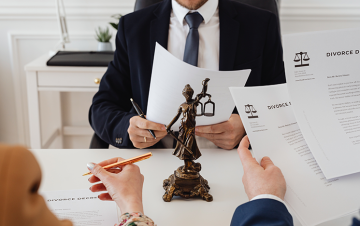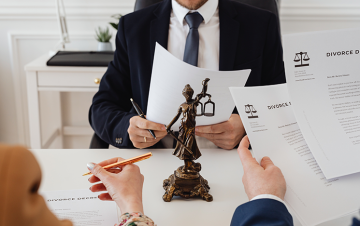What is the liability for drug manufacturing (307vs309)?
Ukrainian legislation provides for severe punishment for any drug-related crimes, but clearly distinguishes between the motivation behind them: for the purpose of distribution or without the intention of sale. Each of these offences, in any case, has its own legal consequences, with drug manufacturing being particularly severely punished. A lawyer in such cases is not just a representative of the person, but also a key figure who helps to understand the difference between Articles 307 and 309 of the Criminal Code, their consequences, and builds a defence strategy depending on the details of the case.
Article 309 of the Criminal Code — manufacturing without the intent to sell!
Manufacturing without the intent to sell may result in both criminal and administrative liability for drugs, depending on the details of the case. For a first offence and small amounts of substances, the punishment is a fine, arrest, correctional labour, deprivation or restriction of liberty. In the case of a repeat offence or a crime committed by a group of persons, administrative liability is not possible — only imprisonment. Therefore, in such situations, the assistance of a lawyer who can find mitigating circumstances and achieve a reclassification of the case is critically important.
Article 307 of the Criminal Code — manufacturing drugs for sale!
Article 307 of the Criminal Code provides for severe punishment for the manufacture, storage, distribution, and purchase of narcotic substances with the subsequent aim of selling them. In such cases, the most severe criminal liability for narcotic drugs applies, since it is not just a matter of personal use, but of direct impact on the public. It is precisely these circumstances that are most often punished by long-term imprisonment, so the defence requires a competent legal strategy.
Administrative liability — when can criminal charges be avoided?
Not all drug-related cases result in criminal proceedings, so it is important to know in which situations administrative liability is sufficient:
- If the amount of substances seized does not exceed the permitted limits.
- If there is no evidence of intent to sell (correspondence with third parties, money transfers, etc.).
- If the person is involved in such cases for the first time and voluntarily cooperates with the investigation.
- If there are mitigating circumstances, such as minority or health problems.
Administrative liability is a chance to avoid imprisonment, so timely legal advice is necessary to gather evidence and prove the absence of intent to commit a crime.
How to distinguish which article applies?
The main factor in determining which article applies to a case is the presence or absence of intent to sell. If a person stores or manufactures drugs exclusively for personal use, as indicated by specific factors, this is classified under Article 309 of the Criminal Code. If there is evidence of transfer, packaging or withdrawal of money, then Article 307 of the Criminal Code applies, which provides for much more severe penalties.
The role of a lawyer in cases of suspected drug manufacturing
A lawyer plays a key role in such cases, performing the following tasks:
- Analysis of the evidence of the investigation: is there real evidence of drug manufacturing, or is it just an assumption?
- Verification of the legality of law enforcement actions: searches, interrogations, detentions.
- Monitoring compliance with rights: this is done to prevent pressure, falsification or provocation on the part of the investigation.
- Formulating a line of defence: for example, reclassifying Article 307 of the Criminal Code to Article 309.
- Support at every stage of the investigation: the lawyer is present at all searches, interrogations, and examinations, represents the client in court, and appeals the actions of law enforcement agencies (if necessary).
A lawyer is a person who will help you understand the situation, reduce the risks of consequences, and avoid unfair punishment.
Case: reclassification from Article 307 to Article 309
In practice, there are situations when a person is initially suspected of drug trafficking, but during the investigation, in the absence of evidence of this intent, the lawyer manages to reclassify the case from Article 307 of the Criminal Code to Article 309. This mitigates the liability, as Article 309 does not provide for the purpose of distributing narcotic substances. Thus, it is possible to reduce the terms of punishment or, in general, avoid imprisonment, especially if it is a first offence.
What to do if you are caught manufacturing drugs?

Do not give testimony without a lawyer. Any words spoken without a specialist can be used against you, so insist on the participation of a lawyer from the very beginning.

Do not sign anything without reading it. Read all documents carefully. Do not sign explanations, protocols or confessions without understanding the situation — this can harm your case.

Contact a lawyer as soon as possible. A qualified specialist will build a proper defence, challenge the evidence or reclassify the case to a lesser offence.
Conclusion: Protect yourself with our lawyers!
Drug cases are serious violations that can radically change your life. But even in difficult situations, there is an opportunity to reduce or avoid punishment. Protect yourself with our lawyers - they will understand all the details of the case, prepare a defense strategy and do everything possible to mitigate liability.








































